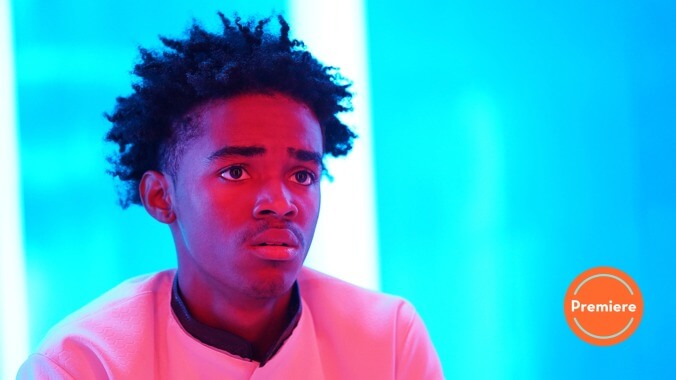Black Lightning has been a political show from the jump. Its black cast and inner city setting charge the show with political relevance, and Black Lightning has never shied away from touching on pressing, raw topics like police brutality, racial profiling, and a host of other social issues. It hasn’t always been subtle in doing so, but the more socially-conscious bent has worked in the show’s favor, as a way of distinguishing it from just about every other superhero show on the air.
The first episode of the third season is just as politically charged as previous episodes, but this time around things feel more relevant, more attuned to this specific time and place. Black Lightning has nodded towards real life events before, but this premiere, centered around kids being rounded up, separated from their families, and locked in detention camps with no idea of when they’ll get out or what they did wrong, feels particularly pointed.
The catalyst is this: it’s been 37 days since the Metas escaped last season, and that’s given the government the opportunity to quarantine Freeland. That means the military is running everything, Odell has set up a detainment center to hold and question Metas like Jefferson and Issa, and there’s no moving in and out of the city’s borders. Kids walking the street have no idea if they’re about to get snatched up, suspected as a Meta, and sent away to a detention camp where their powers are controlled with collars.
The parallel here is pretty clear, as Anissa and a small group consisting of a nurse and Congresswoman, tour the “medical clinic” and see the inhumane conditions. The nurse immediately decides she can’t be a part of this, that this is a moral atrocity. Anissa stays though, because Gambi needs her on the inside in order to get a sense of what’s going on with the ASA. The parallel with the Texas border camps works well here because it’s direct without being preachy or hammering the point home too often. It’s a portrayal of a real-life abomination, which is then used as fodder for this specific story.
And what are superheros if not “others,” people who are feared because they are different and unknown? The difference in Black Lightning is that these specific “others” have potential value. The Metas can be used as weapons for the ASA and the American government. A scene early on sees one of the Metas “attacking” the detention center Anissa is touring. When he’s confronted by Commander Williams, the ruthless man leading the occupation of Freeland, this Meta, named Psyclotronic, chastises him for using him as a weapon, for turning him into weapon of war and ruining his life. Williams kills him.
It’s a disturbing scene, and it reveals the true nature of what’s happening in Freeland. Odell has Lynn and Jefferson under “protective custody” because America could be going to war with the Markovians any time now, and Freeland, with its population of potential Metas-turned-weapons, would be Ground Zero. The thing is, there doesn’t seem to be any Markovian threat at all. Rather, it’s the US government trying to weed out the Metas in order to use their powers as weapons in who knows how many wars. US imperialism is never satisfied.
That’s why Odell kills Issa, in the episode’s most heartbreaking moment. Issa may have a power, but it’s one that’s dangerous to his own captors: he can get people to tell the truth. So, Odell poisons him, and concocts a story about the Markovians torturing him so that Lynn doesn’t get suspicious about his death.
This is a premiere that gets a lot of promising threads moving. Gambi remains a weak link in the show, a one-note character with little to do but engage in exposition, but the rest of the episode is intriguing and urgent. There’s Anissa becoming Blackbird, filling the role of Black Lightning, and getting romantically involved with a reporter. There’s Jennifer coming into her powers (which is admittedly a real slow burn at this point, but the scenes with Anissa still shine). There’s the sharp musings on power, corruption, militarism, and the futility of war. And of course there’s Lala. The dead come back swinging, and so does Black Lightning.
Stray observations
- I need more scenes with Old Tobias. Or just Tobias in general. I hope he’s not locked up too long.
- I wasn’t sure who recorded that cover of Bob Dylan’s “Masters of War” that was used, so if you know, feel free to toss it in the comments.
- Mysterious briefcases are always great.
- These won’t be weekly reviews (which is unfortunate, because this show offers up a lot to dig into), but I should be back to check in on the season finale. See you then!

